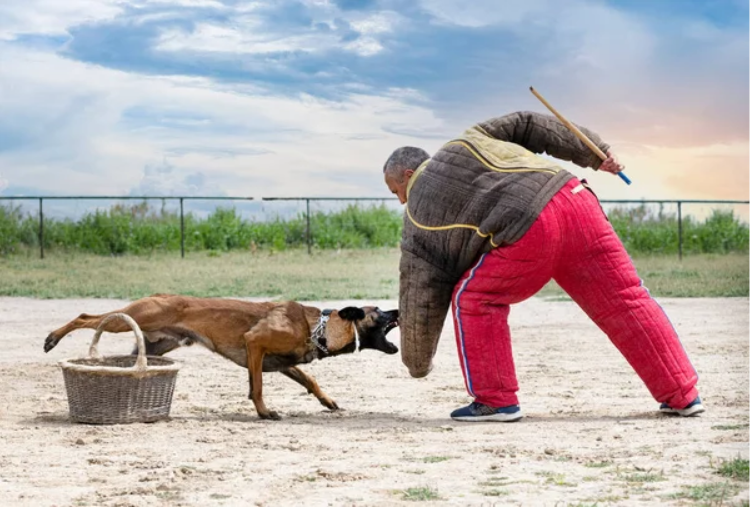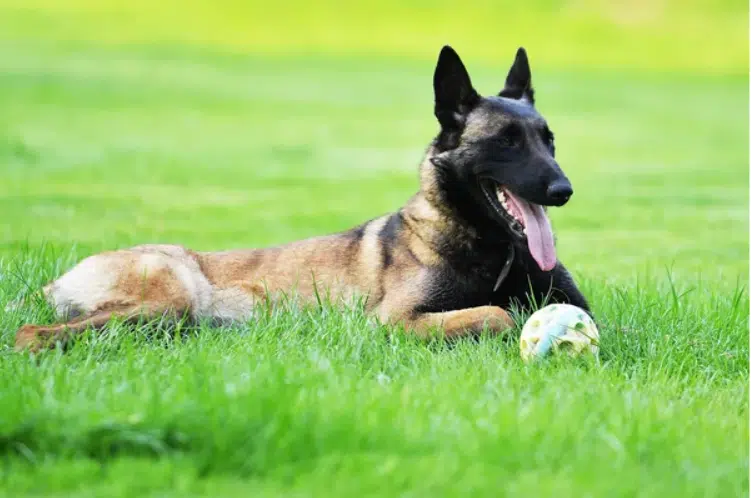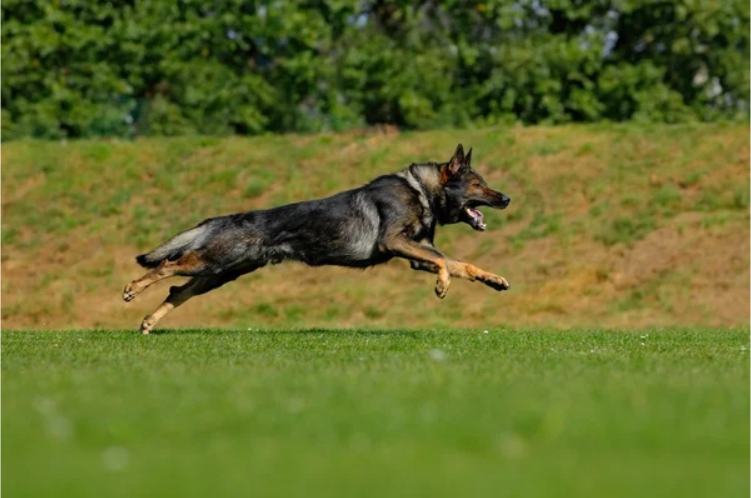In a world where safety is a top priority, many families and business executives are opting for family protection dogs. Herding breeds, known for their intelligence and loyalty, are particularly popular choices. These dogs excel in guarding and protecting their human families. But what makes herding breeds so effective in this role? Let’s explore why these canine protectors are in high demand for both family and executive security.
The Natural Instincts of Herding Dogs
Herding dogs have been bred for centuries to work alongside humans, managing livestock and maintaining order in the fields. This long history of cooperation has instilled in them a unique set of traits that translate remarkably well to protection work:
- Alertness: Always on the lookout for potential threats
- Intelligence: Quick to assess situations and make decisions
- Loyalty: Deeply bonded to their human family or “flock”
- Protectiveness: Natural instinct to guard what they consider theirs
These innate characteristics make herding breeds particularly adept at sensing danger and responding appropriately, qualities that are essential for effective protection dogs.
From Pasture to Protection: The Versatile Skill Set
The skills that make a dog excellent at herding livestock are surprisingly transferable to protection work:
- Boundary awareness
- Ability to control movement of others
- Quick reflexes and agility
- Stamina for long working hours
These attributes allow herding breeds to easily transition from managing sheep to safeguarding humans, making them ideal candidates for protection training.
Popular Herding Dog Breeds for Protection Work
When it comes to choosing a protection dog, several herding breeds consistently top the list. Let’s explore some of the most sought-after options:
German Shepherds
Are German Shepherds herding dogs? Yes, German Shepherds are indeed herding dogs, and they’re often considered the quintessential protection breed. Their versatility, intelligence, and trainability have made them popular choices for:
- Police and military work
- Search and rescue operations
- Family protection
Combine strength with a gentle nature, making them excellent German Shepherd protection dogs that can seamlessly transition from playful companions to vigilant guardians.
Belgian Malinois
Known for their intense drive and work ethic, Belgian Malinois have gained popularity in recent years as protection dogs. They offer:
- Exceptional agility and speed
- Strong protective instincts
- High trainability
While they require experienced handlers, Belgian Malinois excel in high-stakes protection scenarios, making them a favorite among security professionals.
Dutch Shepherds
Often overlooked but equally capable, Dutch Shepherds are gaining recognition in the protection dog world. They boast:
- Adaptability to various environments
- Strong work drive
- Natural protective instincts
These qualities make Dutch Shepherds suitable for both family protection and more demanding security roles.
Training Herding Dogs for Protection Work

Training a herding dog for protection work builds upon their natural instincts while channeling their energy into controlled responses. The process typically involves:
- Obedience training: Establishing a strong foundation of basic commands
- Socialization: Exposing the dog to various environments and situations
- Threat discrimination: Teaching the dog to differentiate between normal and threatening behavior
- Controlled aggression: Training the dog to respond appropriately to genuine threats
How to Train Herding Dogs for Protection
While professional training is essential for protection dogs, here are some key principles we follow:
- Start with a solid obedience foundation
- Use positive reinforcement techniques
- Gradually increase the complexity of scenarios
- Maintain consistent training sessions
- Ensure the dog can switch “on” and “off” reliably
It’s crucial to note that protection training should only be undertaken by experienced professionals to ensure the safety of both the dog and its handlers.
Socializing Your Protection Dog
A well-socialized protection dog is a balanced and reliable guardian. Socializing your protection dog involves:
- Exposing them to various people, animals, and environments
- Teaching them to remain calm in different situations
- Encouraging positive interactions with strangers when appropriate
- Maintaining their protective instincts while preventing unnecessary aggression
Proper socialization ensures that your protection dog can discern between genuine threats and normal everyday occurrences, making them safe and effective guardians for families and executives alike.
The Unique Advantages of Herding Breeds in Protection Roles
Herding breeds bring a unique set of skills to protection work, making them ideal for safeguarding both families and business executives. Their intelligence, loyalty, and natural protective instincts ensure they perform exceptionally in various security roles.
Adaptability to Family Life
One of the most significant advantages of using herding breeds for protection work is their ability to integrate seamlessly into family life. These dogs can switch from vigilant protectors to gentle playmates, making them ideal for households with children. Their intelligence and trainability allow them to understand complex family dynamics and adjust their behavior accordingly.
Executive Protection: Beyond the Family Setting
For business executives requiring personal protection, herding breeds offer distinct advantages:
- Discreet presence: Can blend in as a pet in various settings
- Travel-friendly: Adaptable to different environments and schedules
- Multi-functional: Can serve as both a companion and a deterrent
- Quick thinking: Able to assess and respond to threats rapidly
These qualities make herding breeds like German Shepherds and Belgian Malinois popular choices for executive protection details.
Protection Dogs for Sale: What to Look For?

As the demand for personal and family security increases, so does the market for protection dogs for sale. When considering a protection dog, look for:
- Proper certification and training documentation
- Health clearances and genetic testing
- Temperament evaluations
- Demonstrations of both protection work and off-duty behavior
- Ongoing support and training from the provider
Reputable providers like Scott’s K9 offer comprehensive packages that include initial training, handler instruction, and follow-up support to ensure a successful integration of the protection dog into your life.
The Investment in Safety and Peace of Mind
While protection dogs represent a significant investment, many families and executives find the peace of mind they provide to be invaluable. Consider the following benefits:
- 24/7 protection without technological vulnerabilities
- A deterrent that also offers companionship and emotional support
- Adaptability to changing security needs
- Long-term cost-effectiveness compared to other security measures
Choosing the Right Herding Breed for Protection
When considering a herding breed for protection work, it’s crucial to match the dog’s characteristics with your specific needs:
- Size requirements (e.g., large German Shepherd vs. more compact Belgian Malinois)
- Energy level and exercise needs
- Coat type and grooming requirements
- Temperament and suitability for family life
- Specific protection skills required (e.g., patrol work, personal protection, property guarding)
At Scott’s K9, we specialize in evaluating and training herding breeds for protection work. Our expertise helps ensure that you’re matched with the right breed and individual dog to meet your protection needs while also fitting into your lifestyle.
Conclusion
Herding breeds excel in protection work due to their intelligence, loyalty, and adaptability. From the classic German Shepherd to the intense Belgian Malinois, these dogs offer unmatched security and companionship.
Choosing a family protection dog requires commitment, ongoing training, and an understanding of responsibilities. However, the rewards are immeasurable. A well-trained herding breed becomes a trusted companion, a family member, and a source of unwavering loyalty and protection.
Don’t wait to improve your personal or family safety. Contact Scott’s K9 today to learn more about our available protection dogs and how we can tailor our services to meet your specific security needs. Call us at 919-939-6003 or email steve@scottsk9.com.
